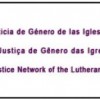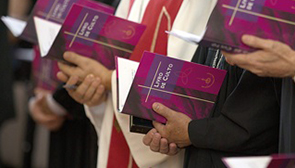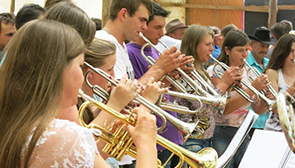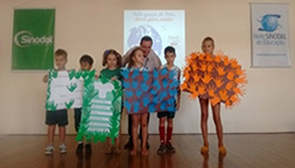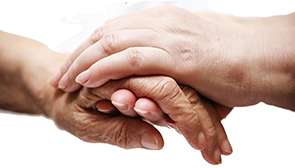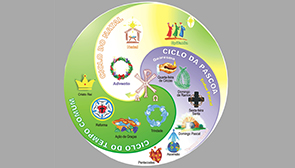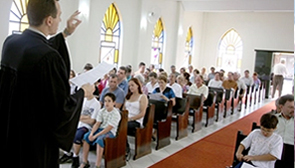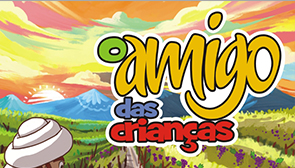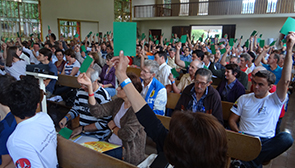Mónica Graciela Hillmann
Iglesia Evangélica del Río de la Plata.
Traducción: Elisa Pérez Trejo (ILM)
The Kingdom of God belongs to those who are like children
Mark 10:13-16
► Where are we standing?
Before seeing the biblical text, I invite you to do a “brainstorm” on BOY / GIRL / CHILDHOOD. What comes to mind? (Phrases about children; the place that children are given in society, in families; how they are considered compared to adults ...). Surely beautiful things appear - and to a certain romantic - about children, and not so nice things - since they are the visible and raw face of the injustices of our society, such as poverty, violence ... -
► (In)Coherence between what we have learned and what we live.
If we do the exercise of thinking about verses or biblical texts that talk about children, surely several and very cute. -We can mention some- But not necessarily in the daily life of our communities we put these verses into practice. Many times in our communities we reproduce the thoughts of society. What about children in our communities? What experiences or anecdotes do we have in this regard -be they our own or that we have seen or heard-?
► Children throughout the Bible
Children, throughout the Bible, are presented as a sign of blessing - this concept appears in the account of creation. Surely the joy of women when they were mothers comes to our memory, as well as the suffering of women who were not, and the conflicts and violence between them to achieve it.
The children, through their questions and their curiosity, were also the ones who helped that history and traditions are not lost. In various places, the elders are invited to teach the children to be on the right track.
But in everyday life, they had the same place as women: they were not people but objects at the service of men who could dispose of them as they pleased. Orphans, widows and foreigners, appear continuously as the most unprotected, without political, social, economic or religious power; those that are sold; those who are violated. The little ones are associated with the insignificant, the weak, the useless, ignorance, on the same level as the sick, the possessed, the slaves. They are excluded, separated, rejected.
► Children today
Many of the situations that appear in the Bible regarding children continue in our times, perhaps they are more visible because there is an agreement about their rights, because there are organizations that work in favor of children. Children continue to be the most vulnerable in the face of conflict, injustice, violence.
With the COVID-19 pandemic, this situation worsened, becoming noticeable in food, access to education and accompaniment in the education process, importance of affection, recreation, meeting ...
► Mark 10: 13-16, invitation to look and act differently.
Let's read Mark 10: 13-16, and try to get into the story.
+ What characters appear in the story? Based on what the text tells us and what the text allows us to imagine, let's describe these characters (who they are, what they say, what they do, what they think, what they are like). If we were to represent them in a play how would we characterize them.
Bringing the children before an important person to touch them was one way to get the blessing for them. We can think that it is women who bring the children, because they recognize someone important in Jesus, or simply that he presented himself more accessible than others for this type of thing.
The disciples, beyond having difficulty understanding what Jesus is saying (previous verses Jesus had already made a child participate in his teaching) had the function of protecting his teachers and more knowing that some wanted to kill him. Sure, following the custom of their time, they believed with privileges in this of the care of Jesus in front of children and their mothers.
Jesus, as an image of God himself, presents himself with a smile, catching on in the children's games, listening to their occurrences, discovering with them what the Kingdom of God is.
Children, perhaps brought by force, pending their games, surely curious about that adult who played with them.
+ With which character do we identify or see ourselves reflected - personally, society?
With which character does Jesus invite us to identify ourselves? Why will it be?
► The Kingdom of God belongs to those who are like children
Jesus is talking about the Kingdom of God. Something where relationships are different, values are different, but you can already play, dream, enjoy today.
God became human in Jesus, but he did not come to earth as an adult male, but as a child. And for many it was not a crazy thing, difficult to believe: there was Mary and Joseph aware that this child was a child of God; there were the shepherds who believed the angels when they told them that a child in diapers was the Savior; there were the magicians looking for a child king to worship; there were Simeon and Anna in the temple recognizing in that child the one promised by God.
Jesus himself was in contact with several children: whom he healed, whom he resurrected (daughter of Jairus, the son of the widow of Nain), whom he valued (child of the loaves and fishes), with whom he sang and played (our text), for whom he was challenged (daughter of the Syrophoenician), whom he invites to consider (everything they did for one of these little ones), whom he gives as an example…
By becoming like children, we are going against the imposed order. By becoming like children, we recognize that we are all children of God - we are in the same condition before God - that we are all brothers to each other - relationships are horizontal, the other is my neighbor, trust is reinforced. When we become children, enjoyment, play, laughter and crying together with others, dreams, imagination, surprise ... things that are free, available to everyone.
What could we do today to be more like those children who were playing with Jesus without problems and thus being part of the Kingdom of God?
What would the story be like if the children told it?


